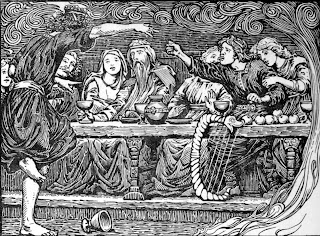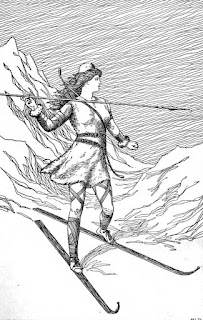Fair Speech, Deeds, and Kinship in Modern Heathen Practice

I have been thinking a lot about Fair Speech in heathenry for a long time. I first became aware of the concept of Fair Speech when I was studying Beowulf in university. Fair Speech is very much tied to other heathen concepts such as Deeds, and Kinship. All three of these concepts relate to Frith and Grith in a way that is so interwoven that it is impossible to separate them. As such, I will focus on Fair Speech in this post, and bring in the other two as they relate to it when talking about Frith and Grith. My hope is that this approach will create a more complete picture of heathenry and these concepts. Fair Speech in its essence boils down to civility and courtesy, the ability to express oneself without being disruptive to the social order or causing unnecessary offense. Within the tribe this takes the form of having a difference of opinion with one’s Kin, but expressing it in dialogue in such a way that all parties can engage in an open discussion that will neither alienate tribe




